Do Cats UNDERSTAND Mirrors and Their Own Reflections?
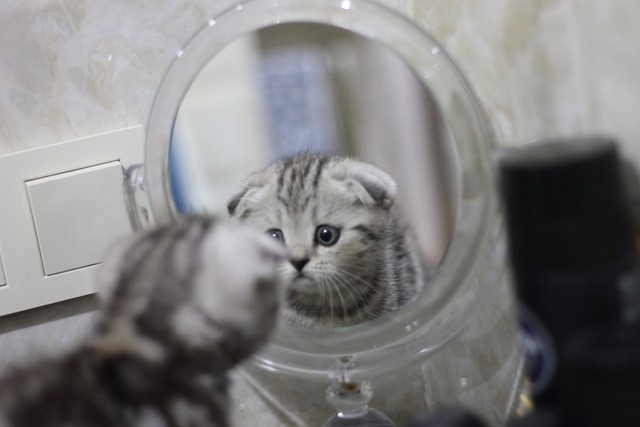
Mirror, mirror on the wall, who's the fluffiest of them all?
Do cats understand mirrors or are they just as confused as we are?
You know what I mean, right?
Standing there, staring at that glass surface, wondering if our feline friends possess a smidgen of self-recognition.
Well, my curious companions, let's dive into this mind-boggling mystery together.
Buckle up, because things are about to get cattastically intriguing! 🐱
Do Cats Recognize Themselves in the Mirror?
Cats do not recognize themselves in the mirror due to a lack of self-awareness. While they can see their reflection, they do not understand that it represents them. Cats rely on their sense of smell rather than facial recognition technology like humans.
Let's settle this debate once and for all.
When it comes to cats and mirrors, they typically do not recognize themselves.
This has nothing to do with them being too preoccupied perfecting their cool and distant gaze.
Instead, it can be attributed to a lack of self-awareness.
While cats may possess impeccable vision without the need for glasses, comprehending the concept of reflections is not their strong suit.
They are more interested in hunting small animals or enjoying long naps than trying to identify the striking creature staring back at them.
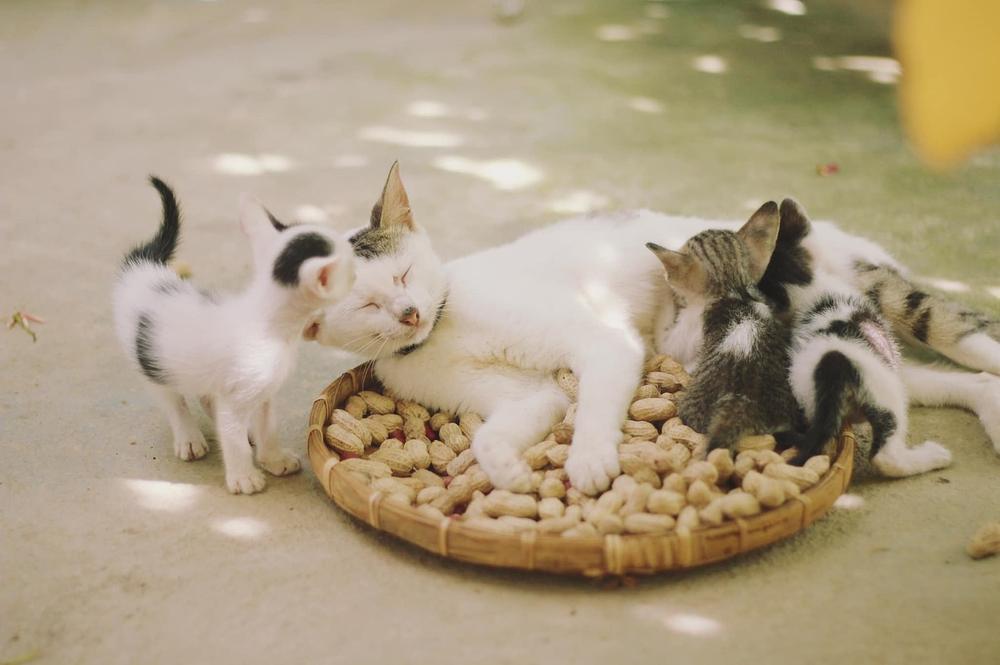
If we delve into the scientific research, my friend, we'll find that cats rely on their keen sense of smell rather than relying on fancy facial recognition technology like humans.
Sure, cats can see their own reflection, but understanding that it represents themselves is beyond their comprehension.
Now, if your furry companion loves playfully pouncing around mirrors, there is nothing to worry about.
They may derive amusement from interacting with their supposed twin. However, when it comes down to it, cats simply do not grasp the ego-boosting realization of "That's me!"
So, the next time Whiskers spends some quality time with the mirror, remember that he may be slightly confused about who is starring in his feline movie.
Main points I'll expand upon further down this article:
- Cats do not recognize themselves in mirrors like humans do.
- Cats may have varying reactions to their own reflection, with some being unbothered while others become scared or hostile.
- Cats rely more on smell and sound rather than visual cues, which may explain their lack of interest or understanding in mirrors.
- Some cats may spend hours staring at their reflections, while others may become afraid or aggressive towards mirrors.
- Cats meow at their own image to communicate with their owners.
- Defensive behavior towards mirrors is a response to the perceived threat.
- Limit your cat's interaction with mirrors to avoid harm or damage.
- Redirect your cat's behavior if they scratch or become aggressive towards mirrors.
- Train your cat to accept mirror reflections by reintroducing them in a positive manner.
- Use tools like Comfort Zone with Feliway to help reduce your cat's stress.
But here's what you might find fascinating...
Self-awareness is a trait possessed by only a select few animal species, including Asian elephants, great apes, dolphins, and magpies.
Guess cats missed that memo...
What Is Self-Awareness?
Understanding your true self is a crucial aspect of personal growth.
Let me tell you, it's no walk in the park.
Now, some creatures can acknowledge the markings on their bodies, but do they bother to do anything about it?
Not really. Unless grooming is deeply ingrained in their DNA, it's just not on their radar.
But humans, we're an entirely different breed.
When we reach around 18 months old, we begin to recognize ourselves in mirrors.
We take one glance and proudly exclaim, 'Hey, that's me!'
However, not every living being on this vast planet possesses the ability for self-recognition like we do. Oh no, my dear friend. This exceptional skill is only mastered by a chosen few.
We're talking about Asian elephants, great apes, dolphins, and magpies.
These magnificent creatures possess the knowledge that they exist as individuals distinct from others.
They have that extraordinary spark!
So, the next time you casually stroll past a mirror and catch a glimpse of yourself, be sure to be thankful for that precious gift of self-awareness.
It's what distinguishes us from the rest of the animal kingdom.
Now, you might be wondering about the fascinating world of cats and mirrors.
Do cats have the same self-awareness as humans?
Can they recognize themselves in a mirror?
Let's delve into these intriguing questions and uncover the truth behind their reactions to their own reflections:
Why Doesn’t My Cat React to Its Own Reflection?
Cats can have varying reactions when it comes to seeing their own reflection in the mirror. Some cats may not react at all, while others may become scared or show aggressive behavior.
But why is that?
Well, it's believed that cats rely more on their sense of smell and sound rather than visual cues.
So, when they see themselves in the mirror, they may simply lack interest or understanding.
Here are a few possible behaviors you might notice:
- Some cats ignore their reflection altogether.
- Others may search for another cat that they believe is behind the mirror.
- Certain cats may display defensive behaviors, such as hissing or swatting at their reflection.
Interestingly, although some cats may enjoy looking at themselves in the mirror, they don't actually comprehend how mirrors work.
This could be because their reflection doesn't have a scent or pose a threat.
If your cat doesn't react to its reflection, there's usually no need to consult a vet.
Aloof cats, in particular, may not show any response at all.
So, don't worry too much if your feline friend seems indifferent towards their own reflection.
It's just another quirk of being a cat! 😺
And if you're wondering about other fascinating aspects of your cat's behavior, I advise you to explore my What Does the Position of Your Cats Whiskers Mean blog post.
In it, you'll uncover the intriguing significance and behavioral cues associated with the position of a cat's whiskers.
Trust me, you don't want to miss out on this fascinating guide! Happy reading!
Why Is My Cat Staring at the Mirror for Hours?
Cats find the movement and light reflections in mirrors fascinating.
You may notice your cat staring at their own reflection for hours on end. But be aware, not all cats react positively to mirrors. Some cats might become fearful or aggressive when confronted with their own image.
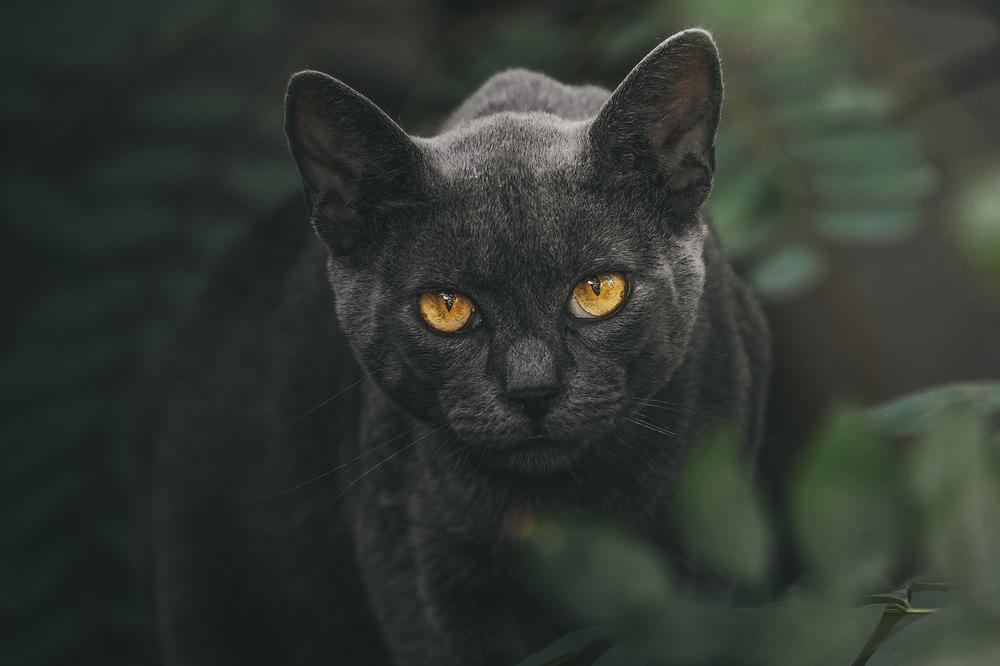
The enthralling movement and light reflections are what attract cats to mirrors.
Their curious nature drives them to investigate and scrutinize their own reflections.
So if you see your furry friend fixated on their mirror image, know that they are simply being curious.
Why Is My Cat Meowing at Mirror?
Why is your cat meowing at the mirror?
- Curiosity: Cats are naturally curious creatures, so when they see themselves in the mirror, it's like stumbling upon a mysterious twin that grabs their attention.
- Social Interaction: When your cat meows at the mirror, they might want to engage with you. They could be craving playtime, affection or simply seeking some attention from their trusty human companion.
- Mirror Repercussions: Sometimes, cats get spooked by their own reflection, which can lead to frightened meows or defensive behavior. It's their way of saying, "What is this strange cat imposter?"
- Territorial Display: Cats take territory seriously, so seeing another "cat" in the mirror can provoke their territorial instincts. Meowing then becomes a way for them to mark their presence or assert dominance.
- Mistaken Identity: In rare cases, your cat may mistake its reflection for another feline, treating it as either a potential playmate or rival. Their meowing might indicate a desire for social interaction or an attempt to establish a hierarchy.
In summary, your cat's mirror meowing is an intriguing form of communication.
It could be driven by curiosity, a longing for social connection, confusion, territoriality or even mistaken identities. Stay attuned to their body language and tone for better understanding and suitable responses.
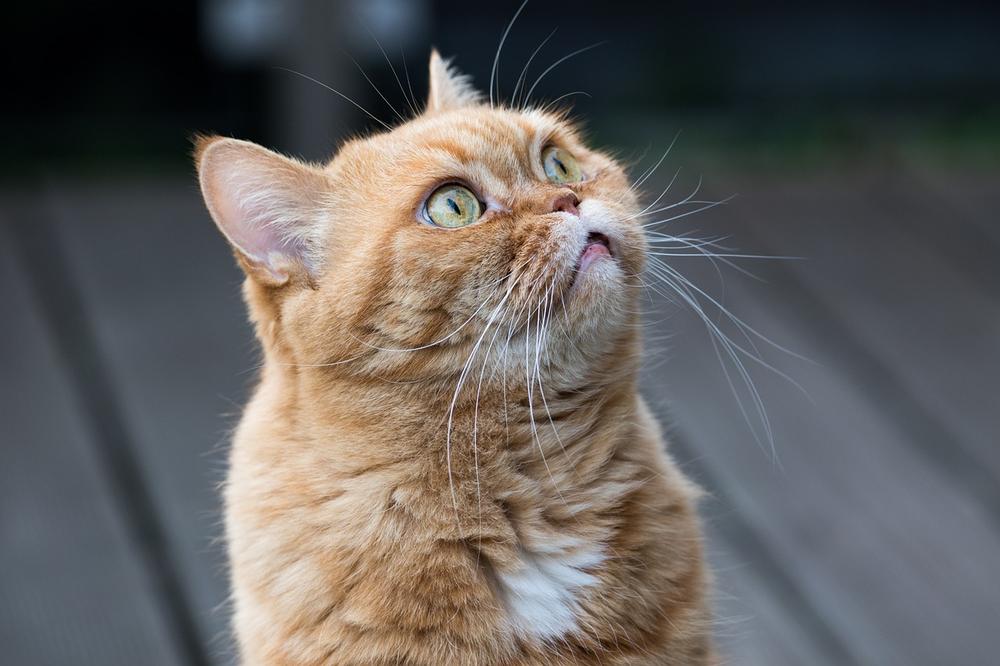
But wait, there's more to know about cats and mirrors.
Have you ever wondered why some cats are scared or aggressive towards their own reflection?
Get ready to dive into the fascinating reasons behind these intriguing behaviors...
Fear of Mirrors in Cats
| Aspect of mirrors and cats | Information |
|---|---|
| Movement recognition | Cats may become startled by sudden movements in mirrors. |
| Self-recognition ability | Some cats may recognize themselves in mirrors. |
| Curiosity towards mirrors | Cats may be intrigued by their own reflection in mirrors. |
| Defensive behavior | Unfamiliar cats may exhibit defensive behavior towards their reflection in mirrors. |
| Territorial response | Cats may perceive their reflection as an intruder in their territory. |
| Vocalization | Some cats may vocalize when they encounter their reflection in a mirror. |
| Dependency on individuality | Cats rely on smell rather than visual cues to identify others, including their reflection. |
| Unpredictable responses | Cats' reactions to mirrors vary greatly from one individual to another. |
Mirrors have the capability to frighten cats.
If a cat is not familiar with its own reflection, it may perceive it as an intruder or danger, triggering a fearful response.
In fact, some cats might even display aggression towards mirrors and reflections due to their lack of understanding in this unusual mirror environment.
However, there's no need to panic.
To address this issue, simply remove the mirror from the cat's field of vision and redirect its attention using amusing toys like do-it-yourself creations, catnip mice, or jingly balls. The key here is to distract them!
Now, you're probably wondering why cats react so strongly to mirrors.
Well, when cats see their own reflections, they perceive it as competition or a potential threat, especially because they are territorial creatures. This reaction stems from pure instinct.
If you happen to have a shy or anxious cat, don't be surprised if they quickly run away or hide upon encountering their mirrored twin.
Some cats may even associate mirror glass with windows, leading to a fear of their own reflection.
Given these circumstances, you have to handle mirrors with caution around your feline friend and ensure a sense of safety and security within their surroundings.
Remember, you are their ultimate protector!
Now, here's the deal...
Understanding why cats react to mirrors is important, but you also need to be aware of their potential destructive behavior.
So, let's dive into the next section and find out what happens when cats decide to scratch those shiny surfaces!
Why Does My Cat Scratch Mirrors?
When cats start scratching mirrors, it can really get on your nerves.
But don't worry, there are ways to deal with this annoying behavior.
Here's some useful advice that goes beyond the basics:
- Give your cat something else to scratch - like a scratcher or a scratching post. This will divert their attention away from the mirrors.
- Temporarily cover the mirrors with a cloth or plastic wrap. This will stop your cat from getting to them and save your mirrors from further damage.
- Use deterrents that cats find unpleasant. There are sprays out there specifically made to discourage scratching.
- Create a safe space for your cat where they can play, relax, and hide. Fill it with toys, comfy bedding, and a cozy spot for them to retreat to.
- Keep your cat mentally stimulated with interactive play and puzzle toys. Boredom often leads to destructive behaviors, including mirror scratching.
- If all else fails, seek help from a veterinarian or animal behaviorist. They have the expertise to guide you with tailored solutions for your cat's scratching issues.
By adhering to these suggestions, you'll acquire a deeper understanding of your cat's motivations and find successful methods to avoid mirror scratching moving forward.
Training Your Cat to Accept Mirror Reflections
If you want to train your cat to be cool with mirrors, it might be tough, but don't worry, it can be done.
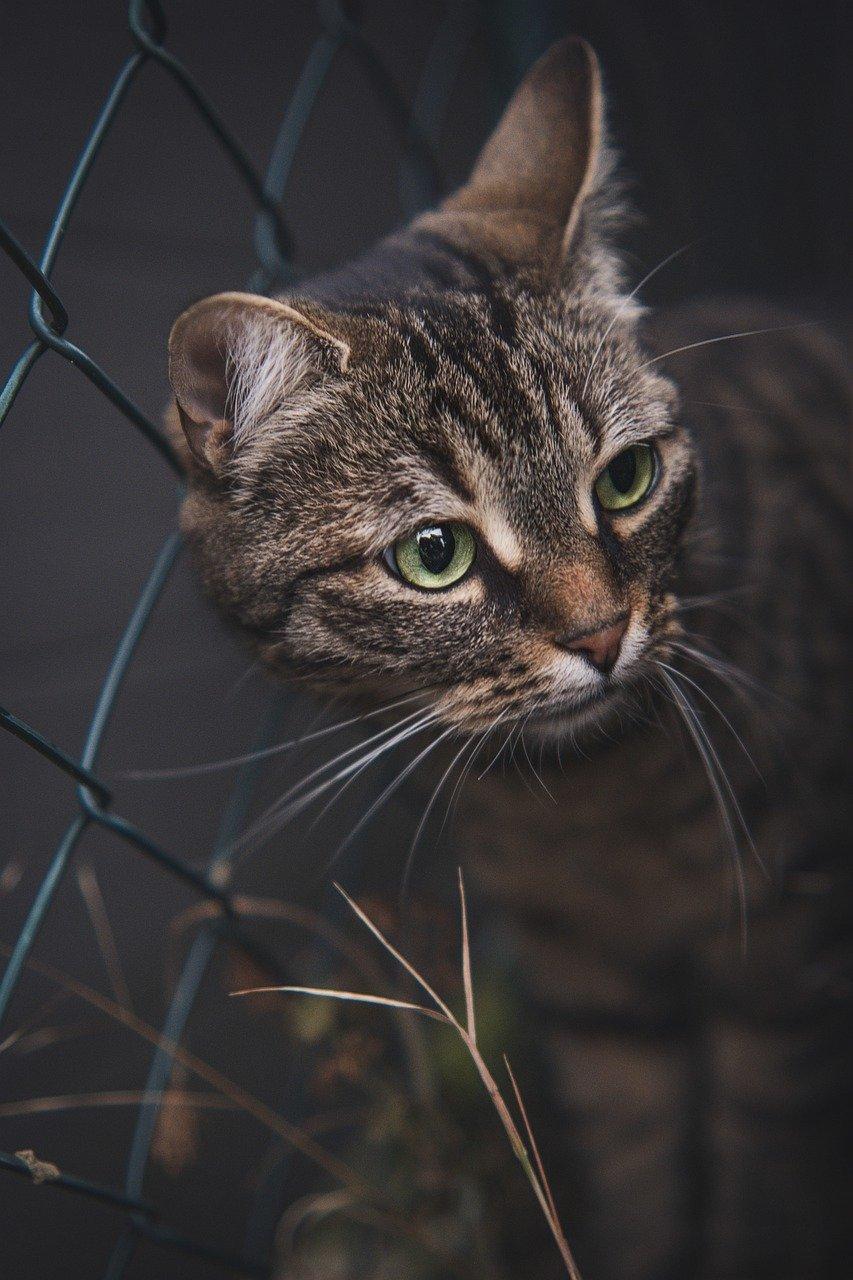
Here's what you can do:
- Start slow by putting small mirrors around your house where your cat hangs out. This way, they won't freak out when they see their own reflection.
- Give your kitty some love when they check out the mirror and act calm or curious. Show them this is a good thing by giving treats or praise.
- Keep an eye on how your cat reacts to the mirrors. If they look stressed or anxious, figure out what triggers these feelings and avoid exposing them to mirrors at those times.
- Instead of forcing your cat into mirror encounters, let them come to it on their terms. Support them as they explore and get comfortable with their reflection.
- You might also consider using Comfort Zone with Feliway, a product that helps cats relax in stressful situations like mirror meetings. But talk to your vet before adding anything new to your cat's routine.
Stick to these tips, and you'll help your cat conquer their fears and create a safe space for them.
Patience and understanding are key throughout this process. ✨
And that wraps up today's article.
If you wish to read more of my useful articles, I recommend you check out some of these: How to Make a Cat Purr, Cats Purr While Eating, Why Does My Cat Bite My Face, How to Potty Train a Cat Without a Litter Box, and How to Stop a Cat in Heat From Meowing
Talk soon,
-Sarah Davis